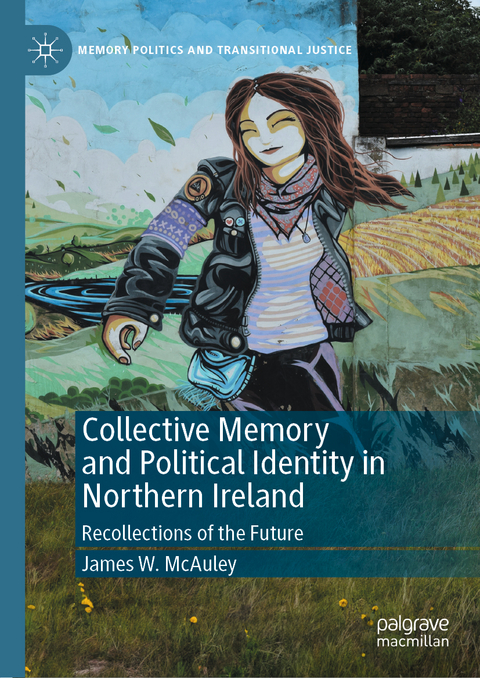
Collective Memory and Political Identity in Northern Ireland
Springer International Publishing (Verlag)
978-3-031-47674-7 (ISBN)
This book covers the notion of collective memory - broadly defined as the ways in which differing pasts are created, understood and reproduced - and how this is perpetuated in Northern Ireland by a wide set of social actors, including nations, religious and political groupings, and local communities. Such collective memories are not a preservative for historically accurate recall of bygone events but rather readings of the past subject to contemporary interpretations and political pressure. The adoption of political symbolism remains central to subsequent events. Indeed, in Northern Ireland, both communities hold their conflicting 'memories' dear and, importantly, rival political organizations have invested much in their own reading of the causes of the outbreak and continuation of the conflict. Set alongside constant exposure to other forms of discourse, texts, songs, prose and more visible physical manifestations - such as murals, commemorative gardens, personal tattoos, and even gravestones - there are a multitude of ways of reminding people of particular memories, community histories and interpretations of events, and of providing the background within which attitudes are formed.
lt;b>Jim McAuley is Professor Emeritus of Political Sociology and Irish Studies at the University of Huddersfield, and an Honorary Research Fellow in Political Psychology at Liverpool Hope University, UK. His research deals with a number of topics, mainly focusing on the consequences of conflict, post-conflict and peace processes and more broadly, identity construction, ethnic and political and collective memory, and concepts of radicalisation and terrorism. He has written widely on the situation surrounding Northern Ireland for many years.
Preface.- Introduction Collective remembering and the power of commemoration.- Chapter 1. Engaging the present through the past.- Chapter 2. Identity, commemoration, remembering and forgetting.- Chapter 3.The active use of narratives in collective memory.- Chapter 4. Imagined communities and community imaginations.- Chapter 5. Localised narratives the construction of community myths.- Chapter 6. Popular cultures, memory performance and using memory.- Chapter 7. Transnational memories and generational change.- Chapter 8. Legacy, victimhood and the possibility of change.- Conclusion. Collective memory, narrative, politics and identity in Northern Ireland: some conclusions.
| Erscheinungsdatum | 25.01.2024 |
|---|---|
| Reihe/Serie | Memory Politics and Transitional Justice |
| Zusatzinfo | XV, 278 p. 1 illus. |
| Verlagsort | Cham |
| Sprache | englisch |
| Maße | 148 x 210 mm |
| Gewicht | 514 g |
| Themenwelt | Geisteswissenschaften ► Geschichte |
| Sozialwissenschaften ► Politik / Verwaltung ► Politische Systeme | |
| Schlagworte | British politics • Collective memory • commemoration • Identity • Irish republicanism • memorialization • Northern Ireland Conflict • The Troubles • Ulster loyalism |
| ISBN-10 | 3-031-47674-3 / 3031476743 |
| ISBN-13 | 978-3-031-47674-7 / 9783031476747 |
| Zustand | Neuware |
| Haben Sie eine Frage zum Produkt? |
aus dem Bereich


